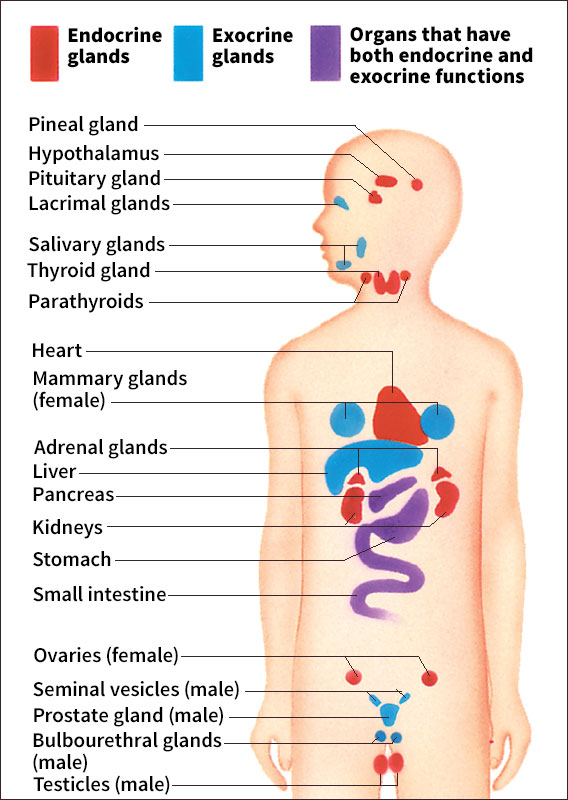Parathyroid gland, << `par` uh THY royd, >> consists of four tiny glands that function as one gland. These glands lie in the front of the neck close to the thyroid gland. The parathyroid glands secrete parathyroid hormone (PTH), also called parathormone, into the blood. PTH helps regulate the amount of calcium and phosphate in the body. These minerals are necessary for a number of important body processes, including bone growth and muscle and nerve function.

When the level of calcium in the blood becomes low, the parathyroid glands increase secretion of PTH. PTH causes the kidneys to produce urine that contains less calcium and more phosphate than normal. The urine is then expelled from the body. PTH also frees calcium and phosphate from bone. In addition, PTH increases the amount of calcium absorbed from the digestive tract.
Malfunctioning of the parathyroid glands can lead to low levels of calcium in the blood. Severe calcium deficiency results in tetany, a dangerous condition involving chronic muscle spasms.
